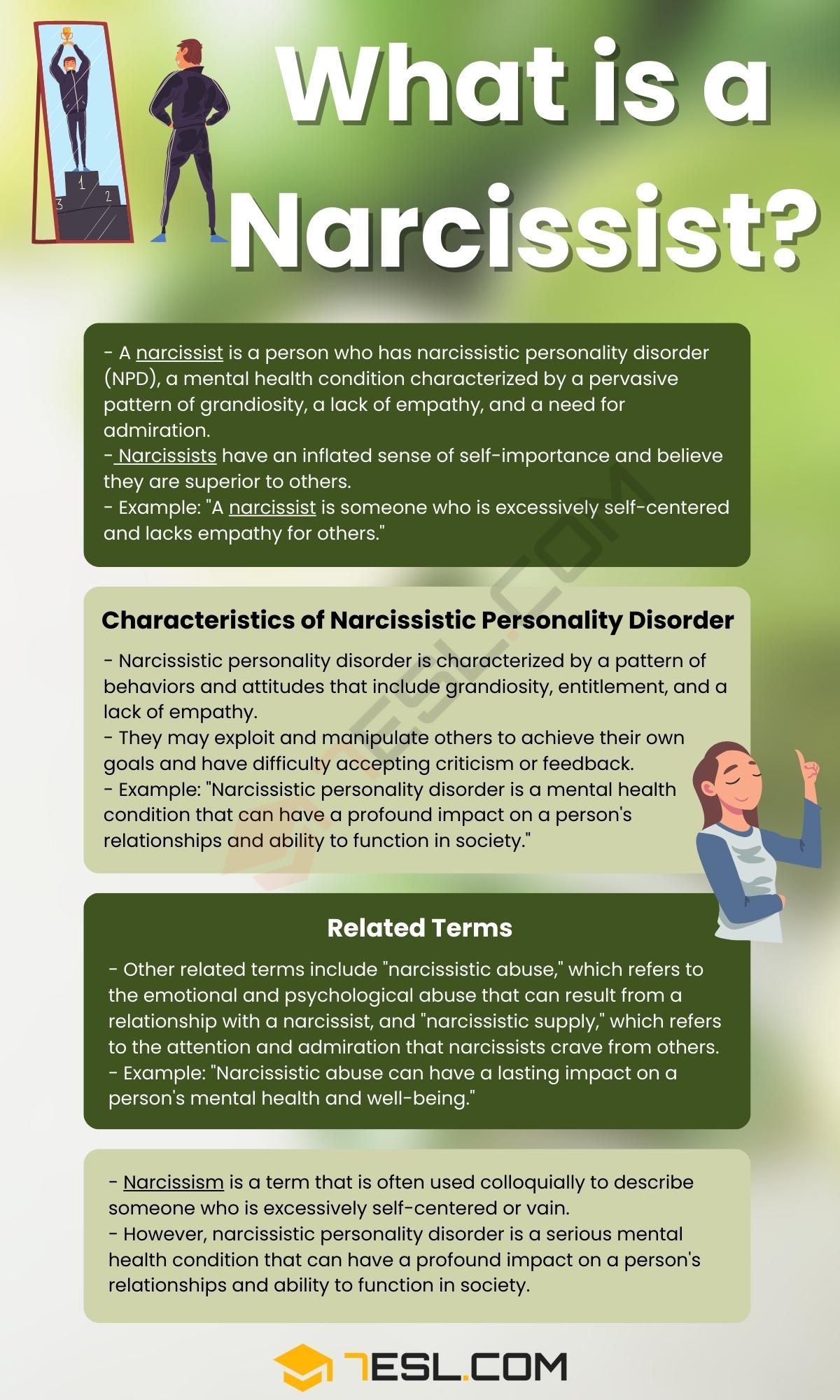Narcissism: Understanding The Complex Personality Trait
Narcissism is a term that has gained popularity in recent years, often used to describe individuals who exhibit self-centered behavior and an inflated sense of self-importance. However, the concept of narcissism goes far beyond casual conversation; it encompasses a range of psychological traits and behaviors that have significant implications for personal relationships, mental health, and even societal dynamics. In this article, we will delve deep into the world of narcissism, exploring its definition, characteristics, and impact on individuals and those around them.
Narcissism is not just a personality flaw; it is a complex psychological phenomenon that can manifest in various forms. From the grandiose narcissist who seeks constant admiration to the vulnerable narcissist who feels entitled yet insecure, understanding these nuances is crucial. This exploration will not only clarify what narcissism is but also how it can affect relationships and mental well-being.
As we navigate through the intricacies of narcissism, we will examine its roots, prevalence, and strategies for dealing with narcissistic individuals. With insights backed by research and expert opinions, this article aims to provide a comprehensive overview of narcissism, ensuring that readers are well-informed about this multifaceted personality trait.
Table of Contents
- Definition of Narcissism
- Types of Narcissism
- Characteristics of Narcissistic Individuals
- Causes of Narcissism
- Impact of Narcissism on Relationships
- Coping with Narcissism
- Treatment Options for Narcissism
- Conclusion
Definition of Narcissism
Narcissism, derived from the Greek myth of Narcissus, refers to an excessive interest in or admiration of oneself and one's physical appearance. In psychology, it is often viewed as a personality disorder characterized by a lack of empathy, a need for admiration, and a sense of entitlement. The Diagnostic and Statistical Manual of Mental Disorders (DSM-5) classifies Narcissistic Personality Disorder (NPD) as a mental disorder, highlighting its serious implications for individuals and their relationships.
Types of Narcissism
Understanding the different types of narcissism is essential for recognizing the various ways it can manifest. Here are the primary types:
- Grandiose Narcissism: This type is marked by an inflated sense of self-importance, a need for admiration, and a lack of empathy. Individuals may display arrogance and entitlement.
- Vulnerable Narcissism: Unlike grandiose narcissists, vulnerable narcissists tend to feel insecure and inadequate. They seek validation but may also exhibit sensitivity to criticism.
- Malignant Narcissism: This is a more severe form that combines narcissistic traits with antisocial behavior. Individuals may be manipulative and exploitative.
Characteristics of Narcissistic Individuals
Narcissistic individuals often exhibit a range of characteristics, including:
- Excessive Need for Admiration: They crave recognition and validation from others.
- Sense of Entitlement: They believe they deserve special treatment and may react negatively when this expectation is not met.
- Lack of Empathy: They struggle to recognize or care about the feelings of others.
- Exploitation of Others: They may use others to achieve their own goals without regard for their well-being.
Additional Traits
Other common traits include:
- Preoccupation with fantasies of unlimited success or power.
- Arrogant or haughty behaviors or attitudes.
- Difficulty maintaining healthy relationships.
Causes of Narcissism
The development of narcissistic traits can be attributed to a combination of genetic, environmental, and psychological factors:
- Genetic Factors: Some research suggests that narcissism can have a hereditary component.
- Parental Influence: Overindulgence or excessive criticism during childhood can lead to narcissistic traits.
- Societal Factors: Cultural emphasis on individualism and success may contribute to the rise of narcissistic behaviors.
Impact of Narcissism on Relationships
Narcissism can have profound effects on personal relationships, often leading to conflict and dissatisfaction:
- Difficulty in Intimate Relationships: Narcissists may struggle to connect deeply with their partners due to their lack of empathy.
- Manipulation and Control: They may employ manipulative tactics to maintain their self-image and control over others.
- Emotional Turmoil: Partners of narcissists often experience emotional distress due to the narcissist's behavior.
Coping with Narcissism
For those dealing with narcissistic individuals, whether in personal relationships or the workplace, coping strategies can be beneficial:
- Setting Boundaries: Clearly defining personal boundaries can help mitigate the impact of a narcissist's behavior.
- Seeking Support: Connecting with friends, family, or a therapist can provide emotional support.
- Practicing Self-Care: Prioritizing one’s own mental and emotional health is crucial when dealing with narcissism.
Treatment Options for Narcissism
Treatment for narcissism, particularly Narcissistic Personality Disorder, can be challenging but is possible:
- Psychotherapy: Engaging in therapy can help narcissists become more aware of their behavior and its impact on others.
- Medication: While there are no specific medications for narcissism, accompanying symptoms such as anxiety or depression may be treated.
- Support Groups: Joining a support group can provide a space for individuals to share experiences and coping strategies.
Conclusion
Narcissism is a complex personality trait that can significantly affect individuals and their relationships. By understanding its characteristics, causes, and impacts, we can better navigate interactions with narcissistic individuals. Whether you are dealing with a narcissist or seeking to understand the trait for personal growth, awareness and education are key. If you found this article insightful, consider leaving a comment or sharing it with others who may benefit from this knowledge.
Thank you for exploring the intriguing world of narcissism with us. We invite you to return for more articles that delve into psychology, relationships, and personal development.
How Did Michael Jackson Meet Debbie Rowe?
Ethan Slater Movies And TV Shows: A Comprehensive Guide
Exploring The Fascinating World Of Stranger Things: A Comprehensive Guide


